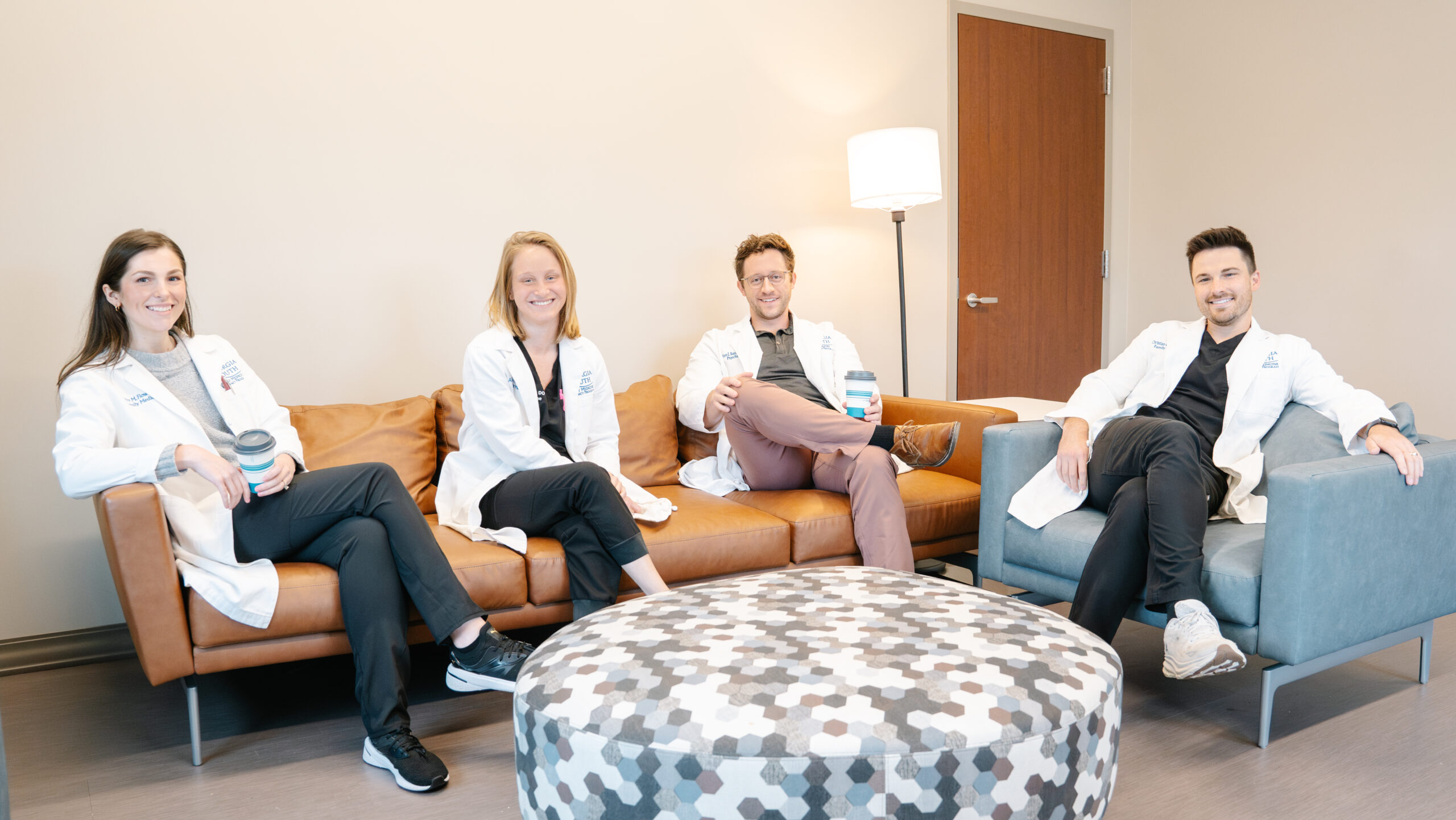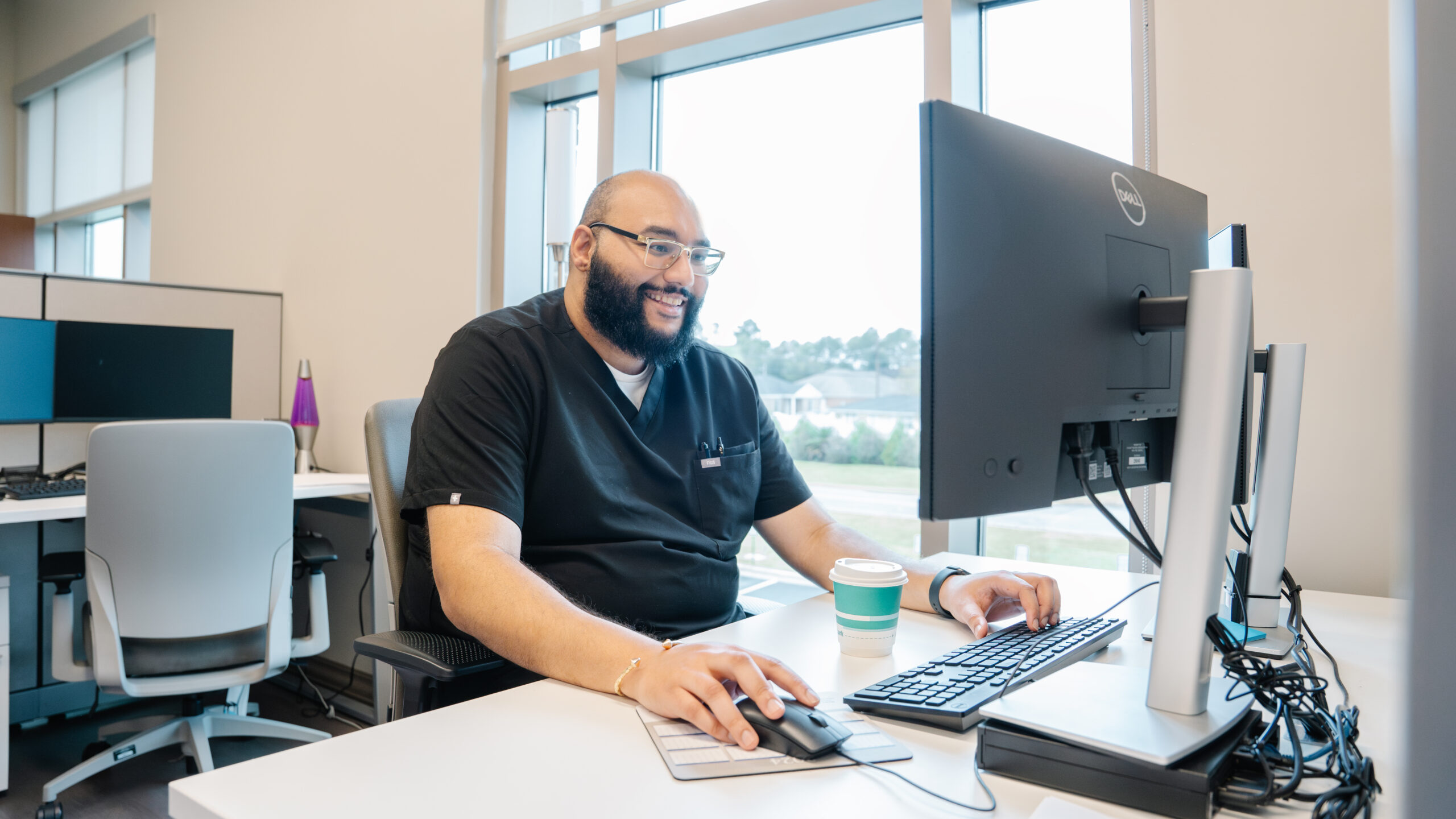
Thriving Together in Health and Wellness
The well-being of our residents is our top priority. Each of our residency programs features a tailored curriculum that includes “Wellness Wednesdays,” giving residents a quarterly afternoon off to recharge and enjoy personal time. Additionally, we offer complimentary meals during work hours to support their health. We also allocate a budget for resident social events and retreats, fostering community and connection among our trainees.
Definitions
These words help us help you. We work with you to manage and overcome physical and emotional challenges you may encounter.
Burnout
Long-term exhaustion and diminished interest in work. Dimensions of burnout include emotional exhaustion, depersonalization and feelings of lack of competence or success in one’s work. Burnout can lead to depression, anxiety and substance abuse disorders.
Resilience
The ability to withstand and recover quickly from difficult conditions or situations. During training, residents may face difficult patient care, educational or personal events that have the ability to negatively affect personal well-being. Decompressing after such situations, through conversation with peers, mentors or family and self-care activities, can increase resilience.
Well-being
The state of being healthy, happy and successful. Well-being may be positively impacted by interacting with colleagues at work, being intellectually stimulated, and feeling that you are helping and making a difference. Beneficial self-care activities include exercise, getting plenty of rest and connecting with others.
Health & Wellness
Colquitt Regional provides residents, faculty and staff access to the fit4you health and wellness program that focuses on work-life balance, financial education, physical health and professional/career development.
- Health Improvement and Employee Wellness: Includes health risk and wellness assessment, health and lifestyle coaching, diet and nutrition resources, fitness rooms, on-site fitness classes and others. Process group, which includes all residents and a therapist, meets once a month.
- Employee Assistance Program (EAP): Confidential and free counseling services that include up to three (3) visits per year. Call 229-985-8452.
Residents may be unable to attend work due to circumstances such as fatigue, illness and family emergencies. Should you be unable to perform patient care responsibilities, the program will ensure that patient care is uninterrupted without negative consequences.
Residents have the opportunity to attend medical, mental health and dental care appointments, including those scheduled during work hours. Follow the program’s procedures for scheduling and notification of these appointments for time off.
We strive to sustain a culture that promotes the health and well-being of all residents, faculty and staff. All are invited and encouraged to “speak up” with concerns about someone’s health or safety so that concerns can be addressed in a prompt and caring manner.
Below are some relevant policies and resources.
ACGME Wellness Resources:
http://www.acgme.org/What-We-Do/Initiatives/Physician-wellBeing/Resources/Additional-Resources
Mayo Clinic and American Foundation for Suicide Prevention Video:
https://www.youtube.com/watch?v=I9GRxF9qEBA
Suicide and Crisis Intervention Hotlines:
National Suicide Prevention Hotline: 800-272-8255
Georgia Crisis & Access Line:
1-800-715-4225
Crisis Text Line:
Text “GA” to 741-741
National Hopeline Network:
Mental Health Resources:
National Alliance on Mental Illness:
Fatigue is real and a potential for many residents. Here are ways we work to address fatigue.
- Fatigue mitigation is discussed regularly during residency meetings, and any concerns are brought to the Graduate Medical Education Committee (GMEC) meeting.
- Residents are expected to determine your ability to fulfill patient care duties and to recognize signs of impairment, including illness and fatigue.
If you have difficulty completing patient care assignments within clinical and educational work hour rules, we explore the reasons and adjust schedules to mitigate excessive service demands and/or fatigue. - Faculty and staff are always available to provide backup to residents who are fatigued and to promote safe continuity of patient care.
- Residents and faculty must demonstrate responsiveness to patient needs that supersedes self-interest. It is critical that you recognize that patient interests are best served by transitioning care to another qualified provider. You must be prepared and willing to transition patient care to others in order to promote safe medical care.
- Georgia South has policies to ensure and monitor effective structured handover processes that provide continuity of care and patient safety.





